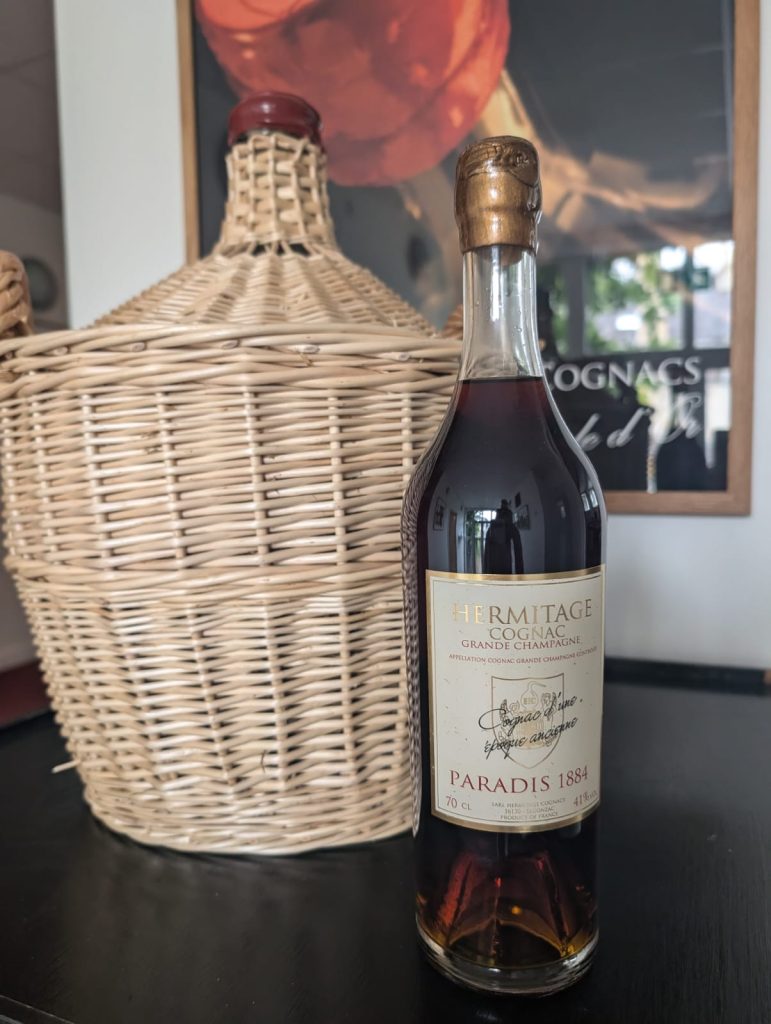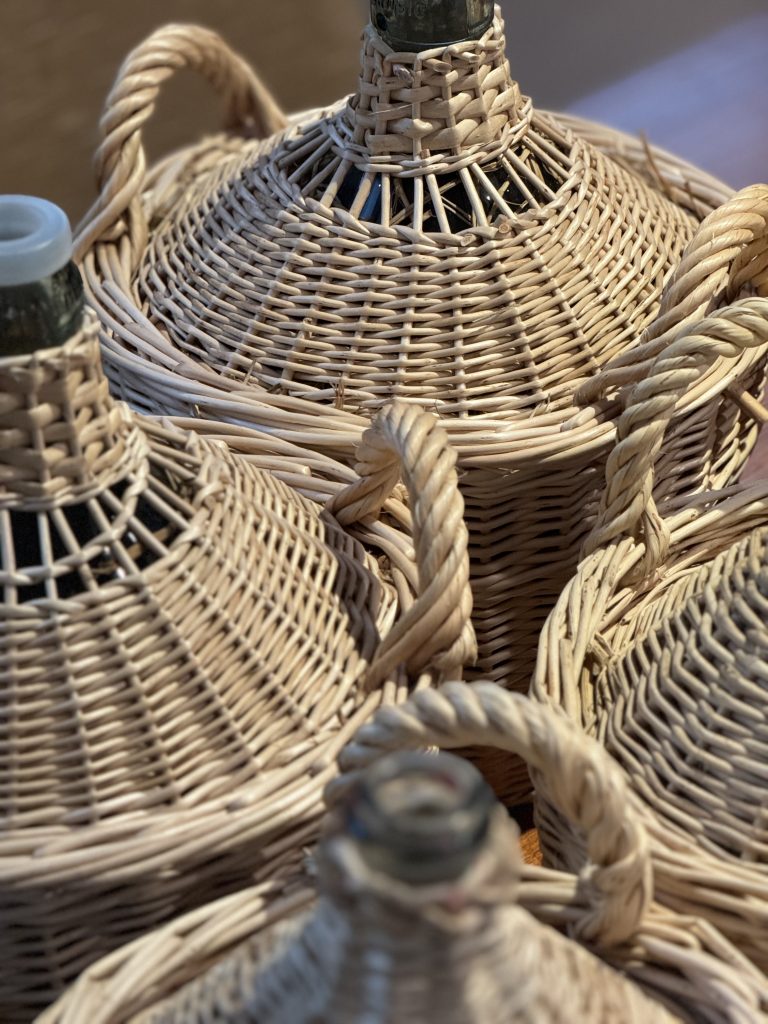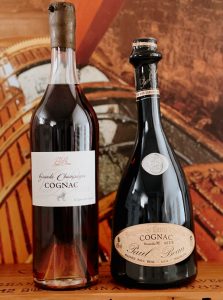Hermitage Paradis Cognacs
The term ‘Brandy’ is used to describe a spirit distilled from a fruit. There are three great French brandies, armagnac, cognac and calvados, the largest group being cognac where there are around 700 to 800 producers spread across six crus in the region of France known as the Charente and Charente Maritime. The top cru is known as Grande Champagne, it is from here that Hermitage Cognacs are sourced.
Cognacs, once distilled, are aged in oak barrels, those from Grande Champagne mature much slower than those from any other cru, indeed, the very finest cognacs which are aged naturally may take as long as sixty or seventy years to reach their highest quality. However, more than 99% of cognacs produced in Grande Champagne are aged for a very much shorter period and are blended with other cognacs to form generic blends which require sugar and caramel to balance their fiery tones.
Paradis, A cellar from Paradise.
Whilst most cognacs produced in Grande Champagne are sold at a very young age to the major cognac houses for blending, a very small percentage of the year’s finest, is held back and stored in the family cellars, and which may be sold to friends and clients of the families who own the distillery, and sometimes the odd barrel may be stored in a smaller area of the cellar or perhaps in a separate store which is called Paradis and where it may be forgotten for several generations.
The cognac will sleep in oak casks, gradually drawing on the tannins and hemi-cellulose in the oak and slowly developing rich and complex flavours, losing its fiery nature and changing into a beautiful deep golden nectar.
Cognac producers have, over the centuries, developed a deep understanding of the cognac process. They have learnt the best type and size of cask to use, how long to keep it in the casks, the best cellars conditions to store the casks in and numerous other skills which have made the fully matured cognac, The King of all Spirits. These priceless gems of the spirit world provide a completeness of maturity and are offered for sale in large glass sealed bonbonnes, and where their perfect qualities are preserved for generations to follow.
Hermitage Cognac, the Perfect Investment
The period between around 1865 and 1940 was when the finest old cognacs were produced. The Cognacais had learnt the skills of distillation and ageing and many of the old cognacs from this period have matured sufficiently long enough to provide qualities that are superior to those both before and after this period. That’s not to say there aren’t good cognacs after the 1940’s it is just that there are very few which have matured fully in cask available. The term ‘Paradis’ applies to Hermitage Cognacs produced before 1900.
Hermitage Cognacs are based in Bradford on Avon, Wiltshire with an operational base near Segonzac in the premier cru of Cognac, Grande Champagne. It is from this base that we have been able to use our vast experience to search and find cognacs which have been stored in old cellars for decades. In many cases, barrels or bonbonnes are in hidden corners of the cellars and may have been ignored for many years. But not every cognac is good, we taste and test them for their quality. we research their history and check the quantity available before we buy them and put them into our cellars in France.
The average value of cognacs is currently appreciating at around 7 – 10% a year, depending on the barrel age and vintage, cognacs of this quality can appreciate faster. When you buy an old cognac you are buying a fully matured spirit which unlike most whiskies, which are only partially matured, are in perfect condition. Cognacs which have reached this state are kept in sealed bonbonnes and can be either stored in them or bottled according to our customers wishes.
Our availability of bottled and duty paid Hermitage Paradis Cognacs include the following vintages. 1875, 1880, 1883, 1885, 1887, 1889, 1890 & 1893 Larger quantities of Hermitage cognacs in bond include 1881, 1882, 1884, 1886, 1888 & 1889, all of these cognacs are in 30 litre wax sealed bonbonnes. Deliveries are normally in wood crates to both National and International markets.



 Paul Beau is a name synonymous with exceptional quality in cognac circles. The company dates back to the end of the 1800s, when Samuel Beau began to work the vineyards surrounding his Segonzac estate in Grande Champagne. When he died in 1914, the cognac house passed to his son, Paul, who together with his wife, grew the estate to over 100 hectares in size. They also modernized the buildings and distillery, whilst keeping the traditional alembic stills to ensure the quality of their produce. In 1977 they decided to sell directly under their own label – and the Paul Beau brand name was created.
Paul Beau is a name synonymous with exceptional quality in cognac circles. The company dates back to the end of the 1800s, when Samuel Beau began to work the vineyards surrounding his Segonzac estate in Grande Champagne. When he died in 1914, the cognac house passed to his son, Paul, who together with his wife, grew the estate to over 100 hectares in size. They also modernized the buildings and distillery, whilst keeping the traditional alembic stills to ensure the quality of their produce. In 1977 they decided to sell directly under their own label – and the Paul Beau brand name was created. f you’re looking for Christmas Suggestions you will have found two recommendations for Hermitage Cognacs in the press last week. Olly Smith, well known wines and spirits journalist and television presenter featured our
f you’re looking for Christmas Suggestions you will have found two recommendations for Hermitage Cognacs in the press last week. Olly Smith, well known wines and spirits journalist and television presenter featured our